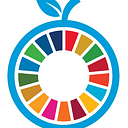Reeling in economic opportunities for Africa’s youth
by Dr Shakuntala Thilsted, Global Lead for Nutrition and Public Health at WorldFish and UNFSS 2021 Action Track 4 Vice-Chair, and Indika Arulingam, Research Officer, International Water Management Institute (IWMI)
Governments knew that youth unemployment was high before the COVID-19 pandemic, but what they failed to realise was how vulnerable even those with jobs were.
Globally, youth employment fell by almost nine per cent in 2020 compared with 3.7 per cent for adults.
And nowhere is the jobs gap more urgent than in Africa, where the median age is roughly 19 years old — half the equivalent in Europe at 42.5 years. Given that more than half of the continent’s population is expected to be under the age of 25 by 2050, creating sustainable livelihoods is a priority.
Figures show that up to 80 per cent of young Africans find work in the food sector but as competition for jobs grows amid scarce and unevenly distributed resources and additional pressures, the continent must ensure opportunities to provide decent livelihoods for its young people.
One sector that holds enormous potential for decent employment opportunities is aquatic food systems, which include aquaculture, capture fisheries and related supply chains. Aquaculture is one of the fastest growing food-producing sectors in the world, yet it currently employs just a fraction of young people.
In Nigeria, for example, less than two per cent of youth who work in agri-food are involved in aquaculture or capture fisheries.
To realise this potential and guarantee prosperous and secure livelihoods for youth in aquatic food systems, policies must recognise the equity, rights and agency of all young people.
The first step is to create the conditions in which young people can secure dignified and rewarding livelihoods for themselves.
To begin with, students need to be able to access the right skills and knowledge through appropriate school curricula and training, such as the aquaculture technical vocational and entrepreneurship training (TEVET) delivered online in Zambia during the COVID-19 pandemic.
Aquaculture education has also been a focus of the Nigerian government since 2014, with curricula on integrated fisheries and even fishery clubs.
But young people also then need opportunities to make use of their training and gain practical experience, which require government-led interventions such as apprenticeship schemes, and labour market policies that ensure jobs for young people with fair pay, decent work and non-discriminatory conditions.
The second step is to enable young people to access the land and water resources, physical tools, finances and markets for profitable livelihoods in aquatic foods systems.
Many young people wanting to work in aquaculture often find themselves excluded for a lack of access to land, boats, nets and processing facilities.
Yet, young people are finding increasingly creative ways to overcome these barriers, from shared access to boats and equipment to e-commerce and digital platforms for market access.
During the pandemic-related restrictions in Nigeria, for example, Imoran Farms met the needs of customers unable to visit the market by promoting and selling their fish through e-marketing. Meanwhile, young people are harnessing digitalisation combined with indigenous knowledge to forecast weather patterns on apps, enabling fish farmers and others to better anticipate climatic conditions.
These multiple ideas, voices and leadership that young people bring to aquatic food systems must be recognised and supported.
Rather than submitting to a system designed by their elders, young people should have leadership roles within community fishing groups and trade unions, for example, to ensure the sector is properly welcoming of the next generation.
In the Africa Women Fish Processors and Traders Network (AWFishNET), for example, young women are actively encouraged to become members, and young people also take an active lead in the Inland Fisheries and Aquaculture Association of Nigeria.
We also need more fundamental change. To fully unlock the possibilities for young people in aquatic food systems, African nations must commit to a fundamental transformation of food systems based on the “principles of sustainability, well-being and food sovereignty.”
Food production and trade have long been the backbone of African economies. With a growing pool of youth, talent, and creativity, it is in everyone’s interest to open up the sector to young Africans.
In doing so, countries are not only delivering future job and income security, but also future food and nutrition security. Africa cannot afford to allow for aquatic food systems to be a missed opportunity.
Article originally published by Christine Muchira, KBC blog.
The views and opinions expressed in this blog are those of the authors and do not necessarily reflect the official policy or position of the United Nations Food Systems Summit.
